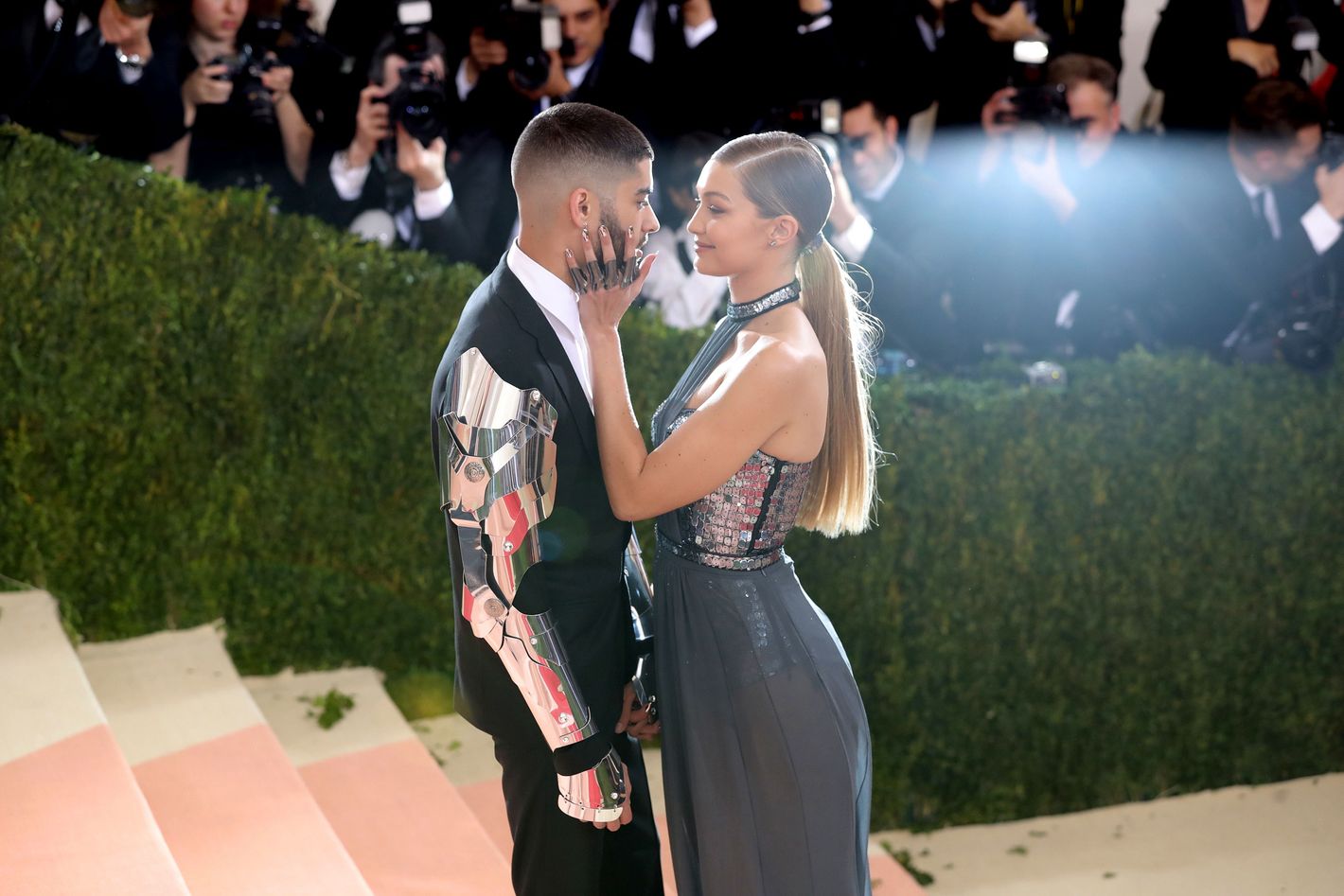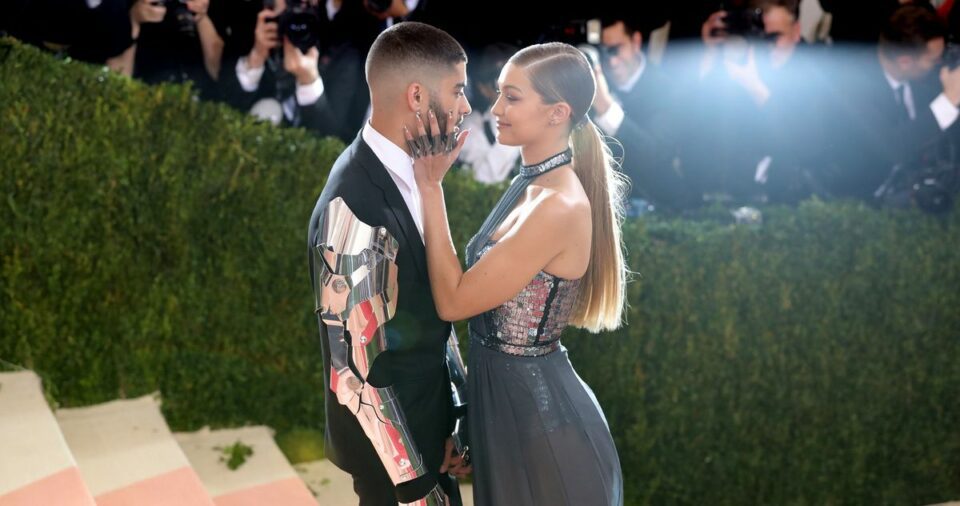[ad_1]

On Monday, May 6 — the first Monday in May — Tom Fitzgerald and Lorenzo Marquez are in go-mode. It’s time for the Met Gala, and, as fashion bloggers, that’s basically their Super Bowl. This year’s theme is “Garden of Time” (get ready for Katy Perry dressed as a grandfather clock) to pair with an exhibit titled “Sleeping Beauties: Reawakening Fashion,” which covers garments too delicate to be worn again. At a time when most mainstream fashion coverage will amount to an outpouring of “slay” headlines paired with uninformed social-media posts, it’s up to independent veterans like Tom and Lorenzo to bring intelligent, honest, and, when warranted, bitchy commentary to fashion’s biggest night.
After 18 years of blogging (and 27 years together), Tom and Lorenzo have blogged thousands of articles, created hundreds of podcast episodes, defined queer TV coverage with their RuPaul’s Drag Race recaps (the only people to have contemporaneously covered every episode), and even written two books, one about celebrity and one about Drag Race. The two started blogging together in 2006 when they launched Project Rungay, dedicated to Project Runway, amid the blogging craze of the 2000s, with Perez Hilton, the Fug Girls, and Gawker all in peak powers. They eventually made their own site in 2011, Tom & Lorenzo, which sees a monthly readership in the millions, according to the duo who are also married. Their opinions on fashion and the clout that comes with it are seen as expert level — when people don’t look down on bloggers, that is. “There are still culture writers and editors 18 years later who think we’re amateurs,” Tom says. “Whatever! Our whole marriage has been about the two of us carving out our niche. Fuck the rest of them.”
I want to start with Project Rungay.
Tom Fitzgerald: Right around the 15th year of doing it, my imposter syndrome evaporated. If you start off as an amateur, then you transition into independent media and blogging, you spend all your time wondering, Do people think I’m an amateur? Do other people in the media respect us? Around the 15th year, I was like, There are only so many people who have been doing this for 15 years independently and making a living out of it. We’re still here.
Lorenzo Marquez: We started when fashion bloggers were everywhere. We would go to Fashion Week, and we were all there, representing our sites. Now, you see two or three.
T.F.: It’s all influencers now.
What was the blogging scene like in 2006?
T.F.: Gawker was at its height, and every blog was chasing that high. Gawker defined what the voice and the language was going to be in blogging. We looked at each other at the time and said, “If we’re doing this, I don’t want to be Perez Hilton.” His name has come up in interviews over the years because if you’re a gay culture blogger, you’re just going to be compared to him. He got success doing something when nobody else was doing it and defined an era. But we knew we didn’t want to be nasty.
When we were conceptualizing the blog, we looked at the Fug Girls and Television Without Pity, and we said, “What if we combine the two of them but through a gay lens?” It sounds insane to say now, but that was a novelty: gay culture writers.
L.M.: That’s why we picked the name Project Rungay. At the time I remember thinking, My God, do we really want that name? But it worked, and not a lot of queer people were out there doing it.
You are comfortable, in your self-commentary, referring to yourselves as “bitchy.” What do you see as the value of bitchiness?
T.F.: We’re talking about very famous people wearing very expensive clothing. You need someone to put a little salt in the sugar bowl. You need someone to be cynical about it. People can go to mainstream publications and find out what Zendaya wore last night, but I can tell you from experience, because we’ve written for some of them: They’re not going to be as honest about it as someone like us. Independence allows people to talk about celebrities in a way that is anti-fandom and anti-corporate media and honest.
I don’t believe in bitchiness for bitchiness’s sake. I don’t believe in being bitchy about someone’s physical self or the circumstances of their life. We just did a podcast about how much everyone can’t stand J.Lo right now, and we were still trying to thread the needle. We’ve had a saying for years: “We don’t want to make Anne Hathaway cry.” But if I say Anne Hathaway’s dress looks like shit, it’s not saying that Anne Hathaway looks like shit. It’s about being bitchy about image-craft or the fact that they are wearing a $40,000 outfit. We should be able to critique that, because they’re trying to sell their $200 million movie, and image and branding on the line for the stuff that we cover, that bitchiness is necessary.
L.M.: Bitchiness brings truth, with humor.
We need to talk about the Met Gala. This is the first one post-Barbie, which has ushered in a new wave of literalism on the red carpet. How do you feel that will affect the gala, which is already a rather literal event?
T.F.: The Costume Institute and Anna Wintour, over the last five or six years, have deliberately gotten more and more esoteric with their themes because they like the social-media conversation that erupts. The year they did “Camp,” I was like, Everyone please shut up about what is camp. The year they did “Manus x Machina” and it was all about technology and fashion, Zayn Malik showed up with robot arms. You have to roll your eyes.
Every year we post a tweet at the beginning of the red carpet where we say, “This is our annual reminder that this is not a costume ball and no one has to dress according to the theme.” Anna Wintour never dresses according to a theme! It’s not Halloween. Last year was the first time when people started trashing us. I probably won’t make that post this year. Literalism is where the red carpet is at: theme dressing, cosplay, method dressing, whatever you want to call it. I loved the Barbie press tour, but I knew it was going to be bad for the red carpet.
I could feel that in your writing.
T.F.: I was like, This is a lot of fun, but this is not fashion. This is drag. This is cosplay. Barbie was spectacularly well suited to that approach, but Zendaya dressing up like tennis balls day after day after day is Spirit Halloween fashion. That is not fabulous. I do understand that Law Roach is coming from a ball and a drag perspective where there are literal categories. But you have to be clever about it.
L.M.: It’s a very lazy approach. You have a tennis ball, so you find where to put it. It would be great to have a different look every single time and not the same white Louboutin pumps for every look.
Fashion is about creativity. It’s just gonna get worse. The studios pay for styling jobs, so I’m sure the studios love that.
What will we see at the Met Gala?
T.F.: You’re going to see a bunch of dumbass Disney stuff. But I think this year we’re not going to be the grumpy old men.
L.M.: With the Met Gala, it’s hard because some fashion houses cannot do a certain theme. It’s just not their style. There’s only so much that Chanel can create and still be Chanel. And that’s the goal — to have the houses represented on the red carpet. So some of them are not gonna do something crazy.
T.F.: You’re gonna see a lot of romanticism, a lot of vintage-inspired stuff, because that is what the exhibit is about. But that whole “Garden of Time” thing? People are gonna show up with flowers on their heads.
Kim Kardashian’s Marilyn Monroe dress was kind of a turning point where some people in the fashion industry asked, “What are we doing here? What is the image that we’re trying to sell here? Is it really about the love of fashion design, or is it about these moments that become controversial?”
It’s been interesting to watch your coverage of Zendaya on Challengers. Because she gets so much praise, you have more space to …
L.M.: To say the truth!
Versus how you wrote about Da’Vine Joy Randolph’s Oscars campaign, which had to be different because she didn’t have the same access.
L.M.: Zendaya is thin! She looks like a model. They don’t even have to fit her. They can just pull anything out of an archive.
She told a story about being surprised she fit the model proportions on the Mugler outfit.
L.M.: That’s what it is. Law Roach is styling her, and he’s a God.
T.F.: And he deserves the accolades!
L.M.: He’s incredible! But it gets to a point that you can’t criticize this person anymore. “I think it’s wonderful. Everything is perfect, fantastic!” Social media has caused that. You have the ability not to let anyone have a critical voice.
I’m curious about your own changing tone. Look at that White Christmas post you put up every year — it’s a much more raw tone. What’s different between then and now?
T.F.: I would never publish that now. There are notes about child abuse and eating disorders in that. Early on, one of the biggest lessons on doing red-carpet commentary was when a Black woman wrote to us and said, “There are other women besides Michelle Obama and Kerry Washington.” I was like, “Ouch.” I realized, Okay, I’m covering straight-haired, relatively light-skinned Black women, who are “chic” in the conventional sense. I’m not covering Cardi B. That was an eye-opener. I was allowing my narrow perspective to influence what’s on the front page of our site, and I can’t do that. I had to learn, as a white, Gen X, gay man, how to write about Black women and fashion, how to write about plus-size women in fashion, how to write about trans women and fashion.
You’ve had people come after you before.
T.F.: Last year, it was Pedro Pascal fans. Suddenly, all these 22-year-old Pedro Pascal fans are saying, “Stop sexualizing that man!”
He courts that.
T.F.: We’re not talking about a 17-year-old here. I will sexualize an adult man because, guess what? I’m an adult gay man.
L.M.: Sarah Paulson dropped our names in the middle of a New York Times interview. If you have any control of how you conduct yourself in an interview, how did you let that slip?
T.F.: Sarah Jessica Parker contacted us on Instagram and said, “Can we talk?” We had been doing a series of “gal on the street” posts during lockdown, and nobody was doing red carpet. We would write, “Good for her. She’s promoting her shoe store.” But she thought we were making her sound really manipulative. Now, I love her — I’m a Gen X gay man — but we never wanted to associate with celebrities. There’s value in the fact that we don’t live in New York or L.A. There’s a whole hassle of gay male culture writers — no tea, no shade — who are making their names by befriending celebrities. I’m not naming anyone, but I bet you know I’m talking about.
Mm-hmm.
T.F.: I’m not here to judge that, but I didn’t want to do this phone call with S.J.P. Still, I felt it would be unprofessional to ignore the message. So we said yes, and she called us. She’s lovely; she’s exactly what you think: super-earnest theater-kid energy. I’m sure she got something out of it, but when we were done, I was like, “She basically confirmed everything that we were writing about.”
L.M.: The thing with celebrities is that they don’t have anyone say anything negative about them in person. When you criticize them, they just don’t like it. I remember talking to Donna Karan’s publicist, Aliza Licht, and she once said, “That celebrity thinks you hate her because you wrote this and that about her dress.” We’re just talking about the dress!
Related
- Who’s Going to the 2024 Met Gala?
- Where Is the 2024 Met Gala in the Garden of Time?
[ad_2]
Jason P. Frank , 2024-05-06 20:52:30
Source link



